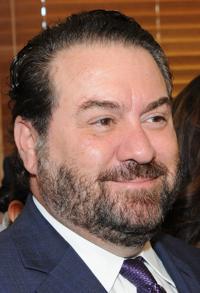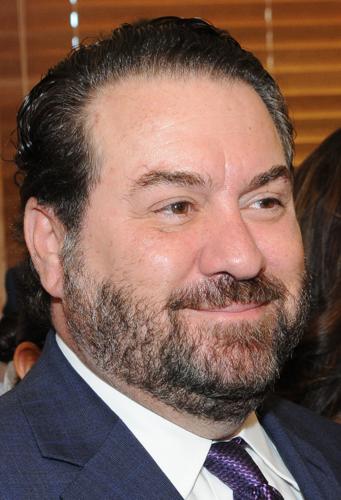PHOENIX т A judge has once again slapped down efforts by Attorney General Mark Brnovich to challenge what he contends is an illegal deal by the УлшжжБВЅ Board of Regents to build a hotel and conference center.
In a ruling late Wednesday, Tax Court Judge Christopher Whitten does not address Brnovichтs contention that the deal violates the gift clause of the УлшжжБВЅ Constitution. That claim is based on the idea that the УлшжжБВЅ Board of Regents is effectively providing a subsidy to the private developer by paying for a conference center that the university would be able to use just seven days a year.
Thereтs also a separate legal question of having what amounts to a tax exemption for the hotel because it is being built on tax-exempt university property.
What Whitten does say is that the legal claim came too late, meaning he has no legal right to decide if Brnovich is right or wrong.
People are also reading…
In a prepared statement, Larry Penley, president of the Board of Regents, praised the ruling т and the implications for similar developments.
тLeveraging our real estate provides an entrepreneurial opportunity to increase revenues to benefit students, the community and the state of УлшжжБВЅ,т he said.
But this isnтt the end of it.
Brnovich press aide Ryan Anderson vowed an appeal. He said the judge got it wrong in deciding the claim came too late.
And even if Brnovich ultimately loses, Wednesdayтs ruling does not provide a clear legal path for the regents to engage in similar deals. It still leaves the door open for Brnovich to sue to block similar deals in the future at any of the stateтs three universities т if he files suit on time.
Central to Wednesdayтs ruling is the fact that lawsuits of this kind must be filed within a year of someone learning about a questionable legal practice. And Brnovich did sue on Jan. 10.
But the paperwork filed at that time dealt only with questions about the authority of the Board of Regents to enter into a deal to create a 330-room Omni hotel and a 30,000-square-foot conference center on land that is owned by УлшжжБВЅ State University.
It was only on April 3 that Brnovich amended the complaint to add the gift-clause allegations.
Whitten said that means if the attorney general knew or should have known about the issue before April 3, 2018 т that one-year statute of limitations т he should have acted by then.
But Whitten said the evidence shows that attorneys within Brnovichтs office circulated and discussed a report by the УлшжжБВЅ Tax Research Association as early as January 2018 which criticized the regents for leasing its property to private entities. That report, the judge said, opined that such transactions were тdubiousт under the gift clause.
Whitten also noted that Rep. Athena Salman, D-Tempe, wrote an op-ed in the УлшжжБВЅ Republic that same month critical of the deal, though it focused more on the $21 million in tax breaks from the city of Tempe. That article, the judge said, also circulated within the Attorney Generalтs Office, with one of the lawyers there commenting that an element of the deal тsounds pretty suspicious.т
He acknowledged there were certain elements about the Omni deal that the Attorney Generalтs Office did not actually know about until after April 3, 2018, one year before the amended complaint was filed. That includes things like the number of days УлшжжБВЅ State University would have free use of the conference center.
But the judge said that didnтt matter.
тThe statute of limitations ... does not accrue when all the details of a claim became known to the plaintiff,т he wrote. тIt accrues when enough details of the deal were known, or should have been, that the plaintiff could identify that a wrong had occurred and caused injury.т
And in this case, Whitten said, the key elements were known more than a year before Brnovich filed his amended complaint in April of this year. That specifically includes the fact that ASU would pay $19.5 million to build the conference center т a facility it would have use of without cost only seven days a year т and that the hotel operators would not pay property taxes because the facility was built on property owned by the regents.
ASU officials, in a prepared statement, said the school is тcommitted to transparency and welcomes inquiry from anyone at any time, including the attorney general, about our projects.т But it also took a slap of sort at Brnovich.
тAt no time did he bother to inquire,т the statement reads.
Brnovich, for his part, is undeterred by the ruling.
тAny time you take on the establishment, itтs never an easy fight,т he said in his own prepared statement. тWe will continue to fight for УлшжжБВЅ taxpayers, for greater transparency and fiscal accountability from our public universities.т
That issue of transparency came up earlier this year in a review by the Auditor Generalтs Office of the practices of the regents in leasing out their property for commercial use. That report concluded there was a lack of proper oversight and limited transparency, creating a тrisk of inappropriate use of public resources.т
The appeal Brnovich promises will address more than just Whittenтs ruling on the timeliness of the gift-clause claim.
Earlier this year Whitten threw out other parts of the challenge by Brnovich, including whether state universities can lease out the land they own for private, for-profit operations.
The judge said УлшжжБВЅ law gives the Board or Regents the authority to buy, hold and sell real estate. That power, he wrote, specifically includes the power to enter into leases of the land it owns.
And in this case, Whitten said, the deal to create the hotel and conference center on land that is owned by УлшжжБВЅ State University clearly is a lease.
The judge also would not let Brnovich claim that, by seeking to void the deal, he is enforcing laws to ensure that all property is being properly taxed.
тAs a matter of law, the property on which the Attorney General seeks to collect tax is constitutionally exempt from taxation,т Whitten wrote, because it belongs to the universities and the regents. тThere is no tax owing, and nothing for the Attorney General to enforce.т













